The surprise star at Facebook’s f8 conference was Nicholas Felton, whom Facebook’s head product developer credited with inspiring the layout of the revamped Facebook. How’d that happen?
“His work was a huge inspiration on a lot of the big ideas that we presented today,” Facebook VP of product Christopher Cox said yesterday. It was the f8 developers’ conference, and Cox was talking about Timeline, the hotly anticipated third-generation redesign of Facebook’s profile page. Timeline exchanges Facebook’s standard single-column, scroll-down format for a more horizontally oriented tile-based interface that’s designed like a “scrapbook-on-steroids,” as my colleague E.B. Boyd put it.
If Timeline is successful, it could alter how people absorb data not just on Facebook, but also on the rest of the Internet (making a lot of money in the process). How? Simply by turning everyone into Nicholas Felton.
Timeline aims to turn Facebook into even more of a central hub for your life.
Right now, your Facebook page discriminates against the past. That’s a design problem: Click on someone’s profile, and all you see are their latest updates, their latest likes, and their latest photos. You have to scroll and scroll and scroll to get any sort of sense about who someone is over any time period larger than a day. Facebook, according to Cox, was struggling to solve this problem before Felton came aboard: A prototype that he nodded to in his presentation, at a glance, seemed cluttered and busy.
Timeline, by contrast, includes an actual timeline, organized in tiles across two columns like a virtual noteboard, that lets you present your autobiography from birth to now. You do it in your own words and with your own pictures, which means you’re free to highlight the milestones (the wedding, say) and bury the embarrassing moments (the bachelorette party). Then you top it off with a mega-huge panoramic photo of yourself or, for the camera-shy among us, a “unique image that represents you best,” to quote the site.
The tiles within your timeline can also include apps: One for tracking your music (and letting others listen to it as well through Spotify), and another to track the movies you watched (with Netflix), and another to track the number of miles you ran, and even the precise route you ran (with Nike+). In short, it centralizes and publicizes all of the details in your life that you never fully log.

